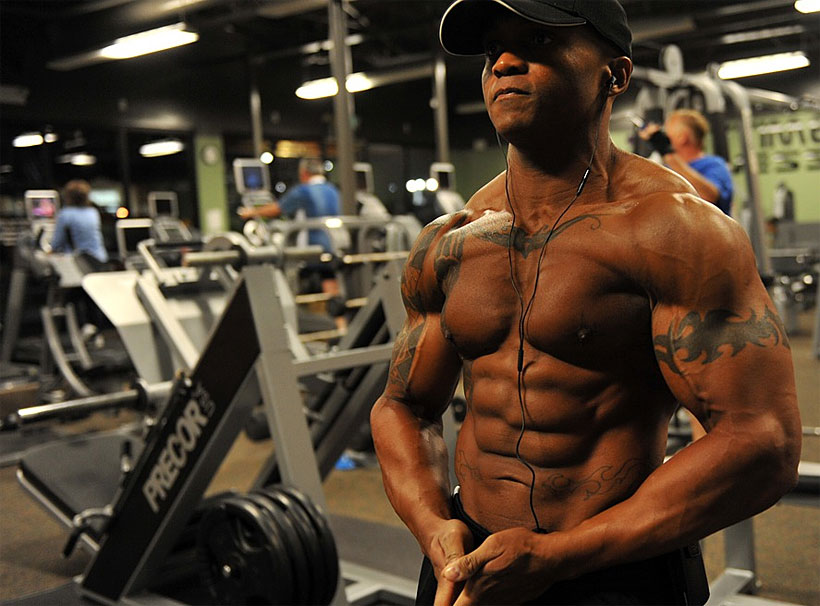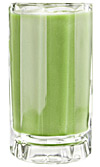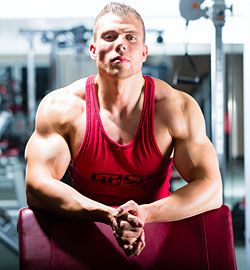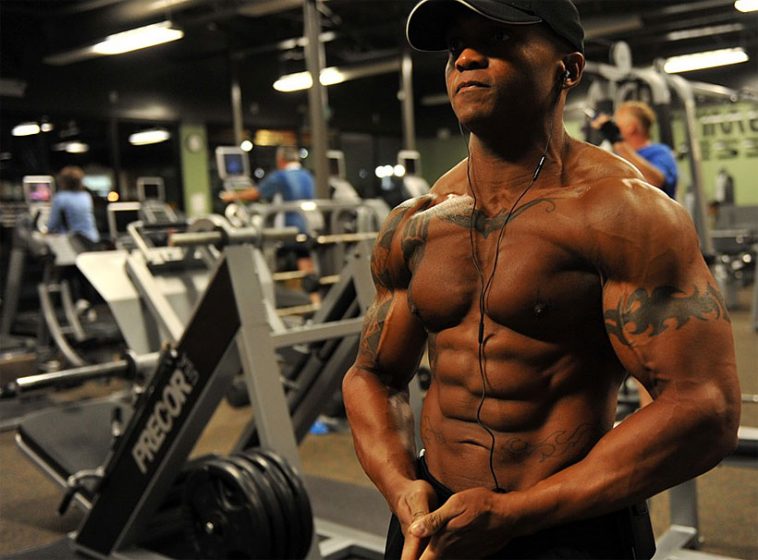- Like
- SHARE
- Digg
- Del
- Tumblr
- VKontakte
- Flattr
- Buffer
- Love This
- Save
- Odnoklassniki
- Meneame
- Blogger
- Amazon
- Yahoo Mail
- Gmail
- AOL
- Newsvine
- HackerNews
- Evernote
- MySpace
- Mail.ru
- Viadeo
- Line
- Comments
- Yummly
- SMS
- Viber
- Telegram
- JOIN
- Skype
- Facebook Messenger
- Kakao
- LiveJournal
- Yammer
- Edgar
- Fintel
- Mix
- Instapaper
- Copy Link
 Most of the information on the internet today regarding bodybuilding involves diet and nutrition. In particular, it revolves around what foods to eat and rarely touches on what to drink.
Most of the information on the internet today regarding bodybuilding involves diet and nutrition. In particular, it revolves around what foods to eat and rarely touches on what to drink.
Good old-fashioned H20 or water is the best beverage bodybuilders can consume because it hydrates the body and helps it get rid of harmful toxins, however, another excellent drink for bodybuilders is fresh juices derived from fruits and vegetables.
Fresh juices from fruits and vegetables provide the body with a wide range of nutrients that aid in building muscle mass, increasing energy, and improving the overall health of the bodybuilder.
These juices take only a couple of minutes to make and you can start with a simple recipe and work your way up to more complicated and healthier recipes with time.
While natural blends should be taken on a regular basis, there are, however, three critical times when bodybuilders should drink fresh juice.
Read on to discover what these critical times are and why they are important.
#1. First Thing in the Morning
 For bodybuilders who juice once a day, this is the right time to do it. When sleeping at night, the body stays without carbs for several hours and needs to replenish in the morning. A bodybuilder’s body also requires a better energy boost than coffee or any pre-packed energy drink. This is where juicing comes in handy; it ensures that the bodybuilder derives vital energy from nutrients contained in various fruits and vegetables.
For bodybuilders who juice once a day, this is the right time to do it. When sleeping at night, the body stays without carbs for several hours and needs to replenish in the morning. A bodybuilder’s body also requires a better energy boost than coffee or any pre-packed energy drink. This is where juicing comes in handy; it ensures that the bodybuilder derives vital energy from nutrients contained in various fruits and vegetables.
As far as juicing in the morning is concerned, it’s important to stick to green juices. This implies choosing recipes that are solely based on vegetables like spinach, purple cabbage, collard leaves, and celery. Such veggies go a long way in providing the body with carbohydrates and probiotics. Its, however, not a bad idea to throw in some healthy fruits such as apples, berries or pears.
It’s important to note that juicing should never be used to replace an early meal but rather to supplement the diet. This is because juices are rich in calories but have no fat and only contain a few traces of proteins, which means that they cannot sustain a bodybuilder until lunchtime. They also escalate the metabolism, which leaves a person feeling famished within an hour. The point is, even after juicing, a bodybuilder needs to consume a heavy breakfast comprising of loads of proteins and fats.
#2. Before an Exercise Routine
 Taking a healthy juice just before a workout is an incredible way of supplying the body with carbs that will be used as a fuel throughout their routine. It’s also a great way of providing the body with nutrients that support muscle recovery. Such nutrients also serve to prevent muscle cramps and oxidative stress that might occur when exercising.
Taking a healthy juice just before a workout is an incredible way of supplying the body with carbs that will be used as a fuel throughout their routine. It’s also a great way of providing the body with nutrients that support muscle recovery. Such nutrients also serve to prevent muscle cramps and oxidative stress that might occur when exercising.
While it’s necessary to have a healthy meal prior to exercising, juicing before embarking on a workout routine offers maximum nutrition within a limited period. All a bodybuilder needs to do is use a high-end juicer to make healthy juices, especially when they’re on a tight schedule. Also, the nutrients in fresh juices are absorbed into the body more efficiently when compared to ingesting whole ingredients.
A bodybuilder may prepare their pre-workout juice in the morning and carry it to work or school in z a suitable container. They, however, need to use recipes that can last for several hours and also practice efficient storage strategies such as freezing and using airtight containers.
#3. Post-Workout
 As a general thumb rule, bodybuilders need to ingest nutrients such as carbohydrates to replenish those burned as fuel during the workout. Most people believe that since they need to restock their carb levels, they only need to consume pasta, cereals, and bread. This is, however, a massive error in judgment.
As a general thumb rule, bodybuilders need to ingest nutrients such as carbohydrates to replenish those burned as fuel during the workout. Most people believe that since they need to restock their carb levels, they only need to consume pasta, cereals, and bread. This is, however, a massive error in judgment.
The ideal post-workout carbs for a bodybuilder are largely dependent on the type and time of the exercises. For instance, after undertaking a 2-hour bike ride and a twenty-minute bodyweight workout, a male whose body fat is over 15% can consume 30 grams of carbs. They can get that amount of carbohydrates from drinking about six glasses of fresh vegetable juice. Likewise, those whose body fat is under 10% should consume between 50 to 150 grams of carbs after a similar workout.
In other words, whatever the post-workout carb intake prescribes, a bodybuilder can get an appropriate amount of carbohydrates from simply juicing. They may also combine their carb ingredients with some raspberries, cranberries or blackberries to increase their insulin levels. Post-workout juicing also provides the body with phytonutrients and antioxidants that prevent oxidative stress that’s usually caused by an intense workout. Vegetables and fruits such as spinach, kale, orange, pineapple, berries, and pears come in handy in decreasing cortisol, preventing inflammation, speeding up muscle recovery and increasing testosterone levels.
The Bottom Line
Juicing presents an excellent means of providing a bodybuilder with the much-needed nutrients very early in the morning or before and after exercising. These juices are often comprised of fruits and vegetables, and they provide the body with the requisite energy. They also carry several other benefits like protecting the body from the adverse effects of intense exercise such as inflammation and oxidative stress.
About Jason Spencer
Jason Spencer has a tremendous enthusiasm for all facets of health, fitness and physical performance that stems from an athletic lifestyle from childhood. Jason was fortunate enough to compete in collegiate football and learned to love the challenges that physical activity placed on the body. As Jason progressed through his higher education and became increasingly aware of how science is applied to physical activity and how it reveals the benefits of exercise, he realized very quickly that he wanted to pursue a career that gives him the opportunity to teach others to compete, challenge, and push themselves towards something more valuable to them than anything else; health, fitness and self worth. Being a fitness professional allows Jason to do this for them and he is always incredibly grateful for that. Jason has a Bachelor of Science degree in Neuroscience from Muhlenberg College in Allentown, PA. Neuroscience and his acquired knowledge of the nervous system and muscle stimulation techniques has been extremely instrumental towards building a unique ability and feel for training the body for optimal form and function. As a personal trainer he is certified with ACSM (American College of Sports Medicine). He's also a strength & conditioning specialist with NSCA (National Strength & Conditioning Association). He has additional certifications in both kettlebell principles & techniques (Equinox), and Flexibility & Corrective Exercise (Swedish Institute of Health Sciences in NY). Jason has worked as a trainer and conditioning specialist in a variety of fitness facilities over the years such as: LA Fitness in Piscataway, NJ, the YMCA in Metuchen, NJ, and Equinox Fitness Clubs in New York, NY. He also does private in-home sessions all over the Manhattan area.

